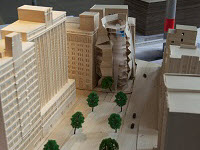Equitable Cities - PLAN2004
Description
Equitable Cities examines contemporary issues facing planners working in a diverse and complex society. Students engage with the broader social, economic and cultural shifts which are continually reshaping the neoliberal city. Students consider questions of spatial disadvantage, social exclusion, ‘spatial justice’ and equity, and ‘rights to the city’. Change in the built environment invariably impacts on disadvantaged and disenfranchised groups disproportionately, where for example redevelopment and gentrification may be accompanied by quickly changing community profiles, rising housing costs, unhealthy environments and potential displacement. As planners we must steward the future direction of our cities and communities in ways which value and foster diversity. Planners must ensure that the interests and needs of all groups, including ethnic communities, children, the aged, women, people with disabilities, people of all sexual preferences, Indigenous and homeless people are heard. Planners are also increasingly engaged with the creation of healthy built environments, fostering wellbeing alongside health professionals in decisions taken which affect the built environment's ability to be supportive of healthy behaviour. The role and capacity of current planning frameworks to achieve more equitable and health supportive outcomes are explored, including the preparation of community strategic plans, the use of social and health impact assessments, as well as more creative inter-disciplinary and bottom-up consultative approaches and working practices.









